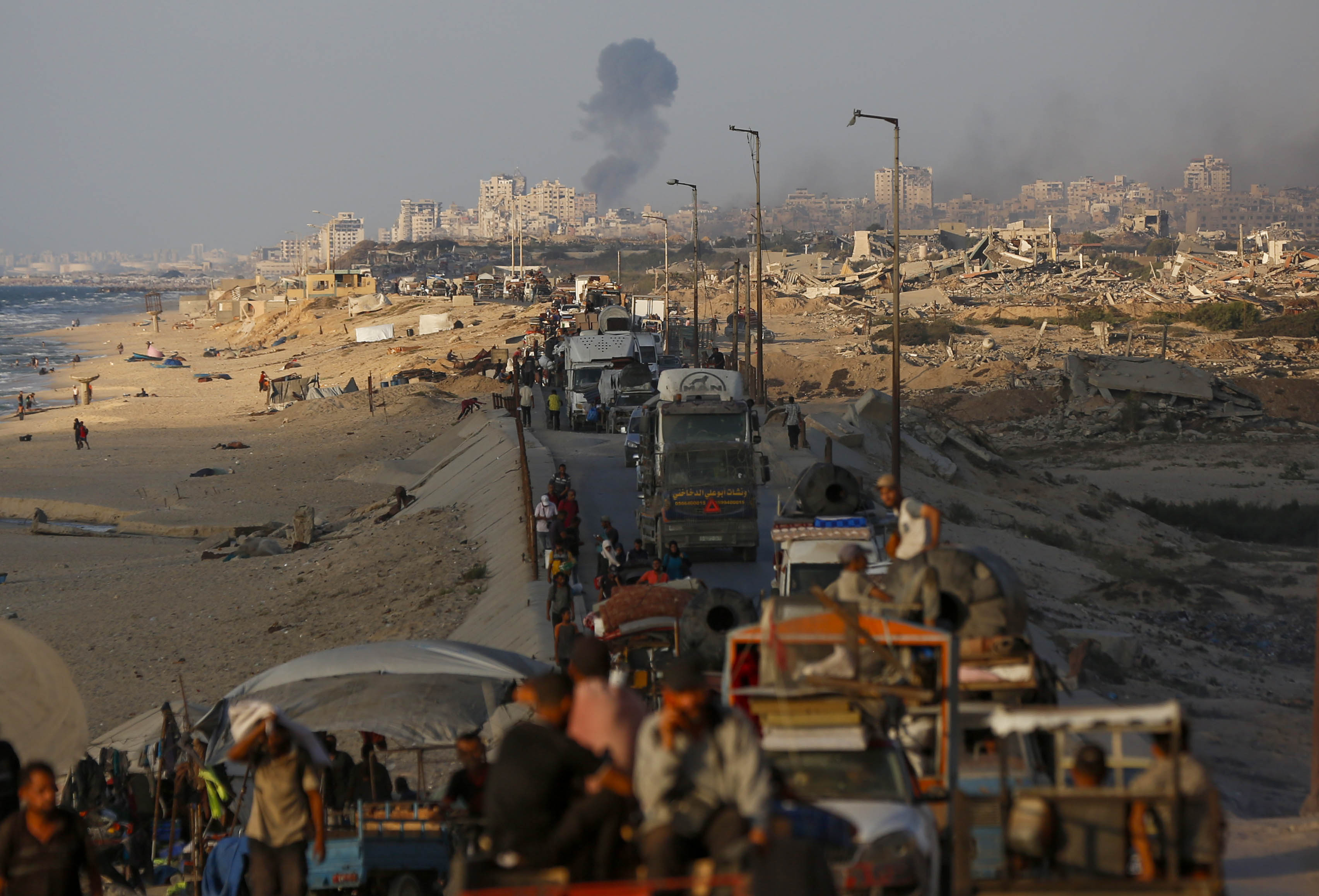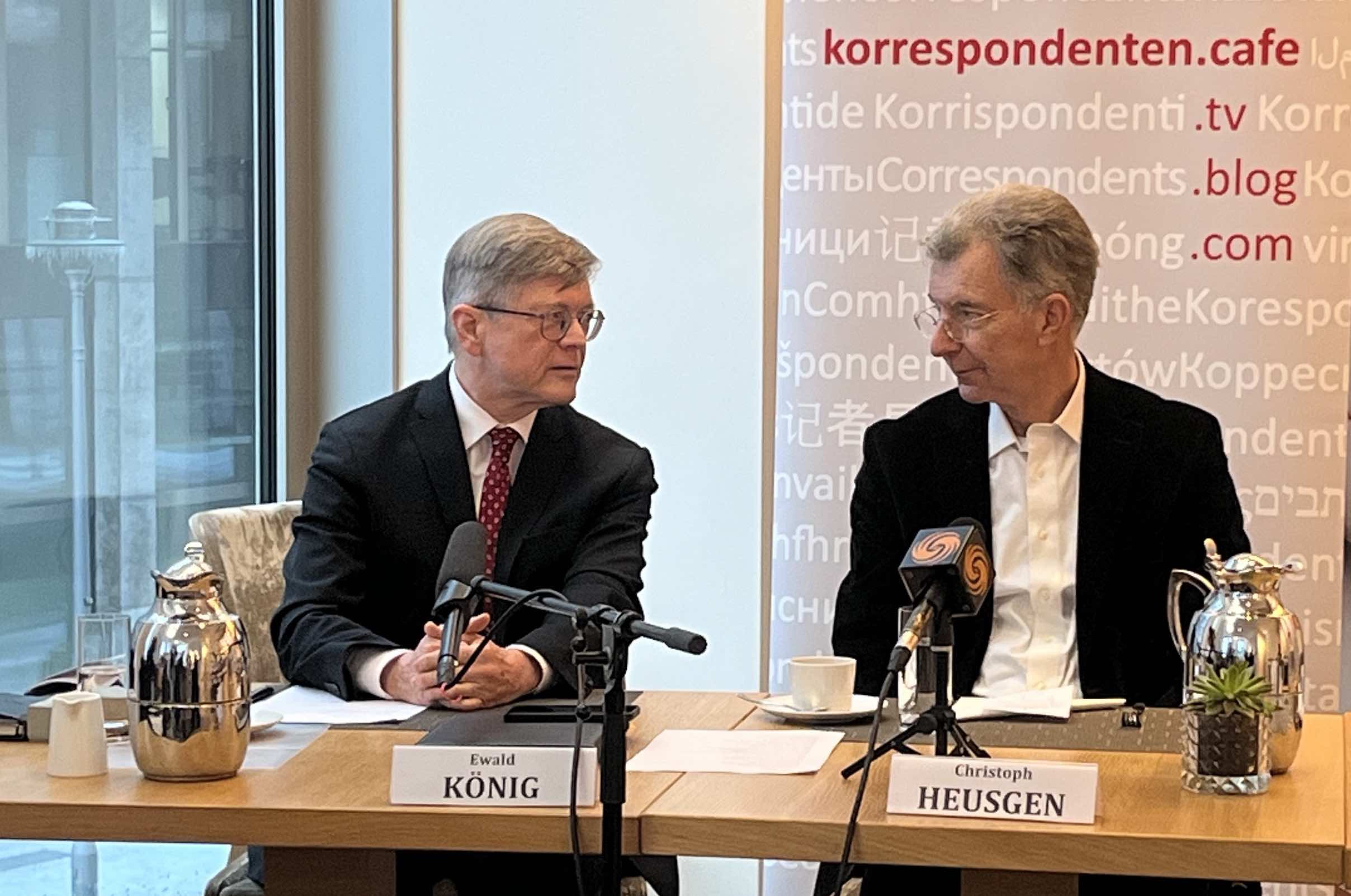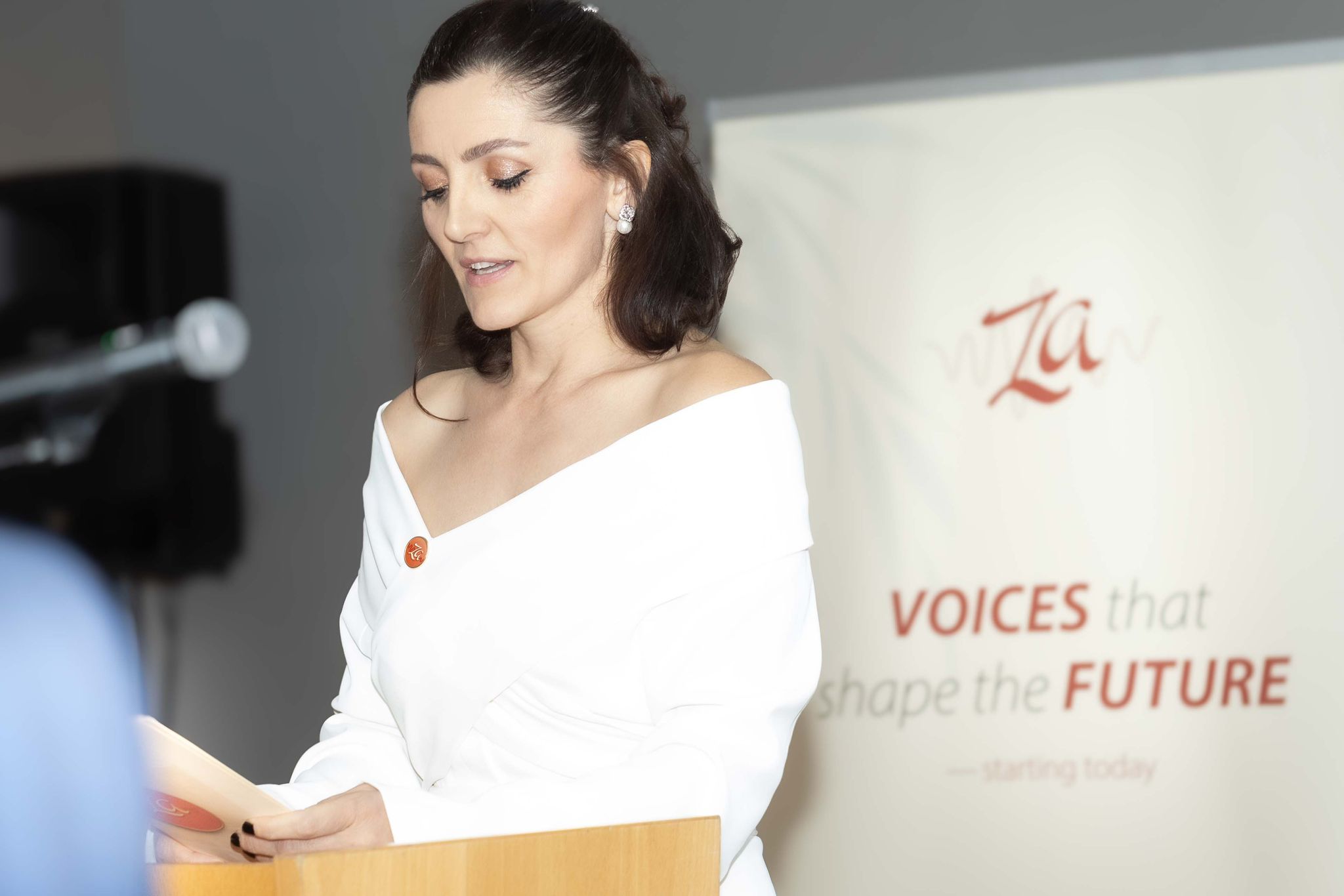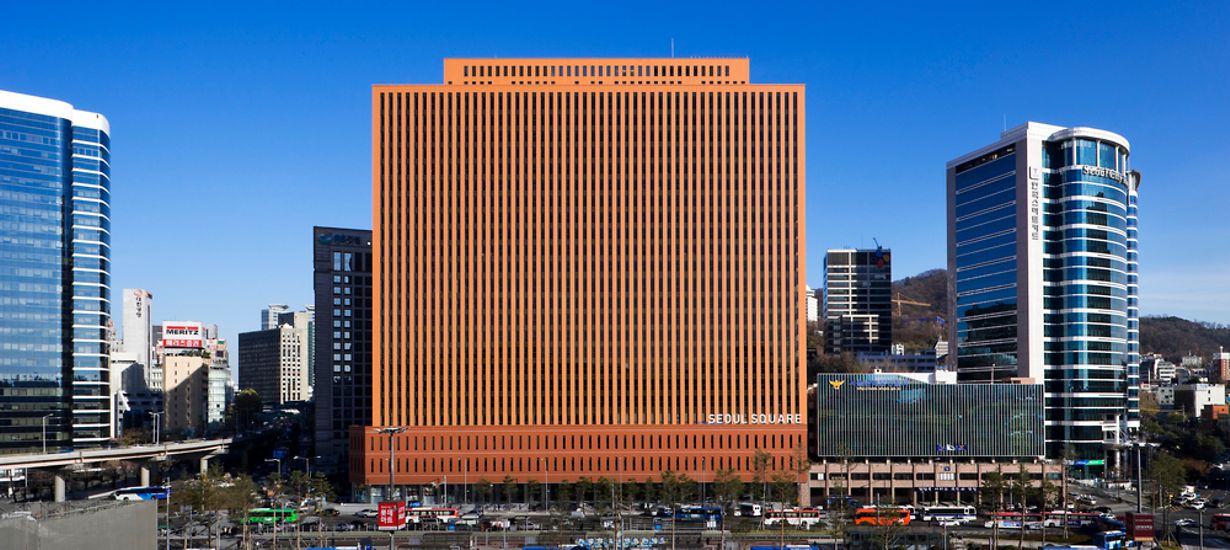diplo.news
“The political dimension is completely absent in the Trump plan”
Interview by Lukas Stock and Gudrun Dometeit

diplo.news had been talking to you about the future of the Gaza Strip some weeks ago, and you sounded quite pessimistic. Did the ceasefire or the beginning of the peace process surprise you?
I wasn't surprised that the ceasefire happened quickly. The first phase of Trump's plan went smoothly because it included strong incentives for the two sides. The Israelis were badly in need of releasing the hostages, and the Palestinians were badly in need of stopping the genocide, the destruction and displacement. So this first phase of the agreement met the priorities of the two sides. However, the next phase is different. It does not include enough incentives, especially for the Palestinians, and not even for Israel. A few days ago the visit of top American diplomats in Israel and Egypt, including the Vice President, ended without any progress. Palestinians and Arabs have different reservations on the second phase of the plan. And when I say Palestinians, I don't only mean Hamas. I mean all Palestinians, including the Palestinian Authority (PA), which is extremely critical of Hamas.
The first phase will be finished with the exchange of all Israeli hostages – which hasn’t been realized yet - and the release of Palestinian prisoners. The second phase should start with the decommissioning of weapons of the Hamas. What exactly are the reservations of the Palestinian side towards this second stage?
The first reservation is that it will separate Gaza from the west bank, while we Palestinians envisage both as an integral territorial unit and as territories of a future independent Palestinian state. Arrangements that will put Gaza and the West Bank under two different administrations will consolidate the division that Israel has been trying to reinforce. The second problem is that this plan leaves Gaza under foreign custodianship and this is not something Palestinians are happy with. They prefer Gaza to be governed by Gazans with the government's arrangements linked to the PA - in order to maintain the minimal level of continuity between these two parts of the future Palestinian state.
What kind of incentives could make the realization of the second phase easier?
The Americans should look favorably to the Egyptian proposal about governance, which is about establishing a non-political technocratic group of experts from Gaza to be in charge of the administration. This body can be linked to the PA in order to ensure legitimacy. This proposal enjoyed not only the approval of all Palestinian factions but also the support of Arab countries which is very important for the success of future arrangements. The second incentive refers to the finances for the reconstruction because until now nobody is making any commitments.
Who should do those commitments?
The US is not likely to pay. In fact, the Americans seems to be interested in making money from the reconstruction. And I don't think Europe is willing to spend a significant amount of money, because of internal difficult situations and other priorities. I also did not hear any commitments from Arab countries. They cannot oppose the plan, but they're not enthusiastic about it.
What could make the Israelis more dedicated to realize the second phase?
The Israelis are in a comfortable situation, because they already got the hostages back, and the bodies of the dead ones are being transferred slowly. Israel is also already in military control over half of Gaza. They are not in a hurry. The pressure is on the Gazan side, where Palestinians are still living in a horrible situation. It's true that there is much less killing, but the life conditions are still difficult.
You are criticizing the plan for separated administrations in Gaza and the West Bank. The Israeli parliament discussed a draft which would allow Israeli law in the West Bank. Doesn't this mean a de facto attempt to annex the West Bank? Even US-Vice-President JD Vance warned the Israelis to NOT TO !!! do that. What would that mean for the peace process?
Apparently Israel is reconsidering this whole legal process, probably because of the strong reaction by the US. Obviously Netanyahu ordered his coalition to withdraw all these proposals from the agenda of the Knesset. But if you look at the reality in the West Bank, Israel is stealing every day more land and Israelis are illegaly settling down there very, very fast. While Israel is probably prevented from taking major decisions to implement the Israeli law there, they are de facto doing what they want, encouraging the illegal expansion of Jewish settlers on Palestinian land and unleashing the settler violence. Especially now during the olive harvest in Palestine, we hear stories of settlers attacking Palestinian villagers and preventing them from reaching their farms, harassing them, burning their cars, stealing their cattle, preventing them from reaching their crops.
Could the further enforcement of the settlement policy harm the peace process in Gaza? What are the most difficult problems to be solved in this process?
There is no peace process. Trump's plan is about trying to stop the war in Gaza and trying to make arrangements that will allow the reconstruction in Gaza. There is a humanitarian initiative, a ceasefire, an economic initiative. But it's not a political peace process. This would be about the political frame of the conflict, the Israeli occupation, especially in the West Bank, the violations of political and national rights of the Palestinians. The political dimension is completely absent in the Trump plan. This is another reason why Palestinians and Arabs are not quite enthusiastic about the plan. It talks only about Gaza as if this is a separate reality. The origin of the conflict is political and the solution is only political. It has to take into consideration the legitimate rights of the Palestinians and the development of an independent Palestinian state alongside the state of Israel.
For any solution in this “eternal” and very complicated conflict each of the two sides must be able to rely on the other side adhering to the agreements made. How to overcome the deep distrust?
We can move towards mutual trust if we can move gradually towards ending the occupation and ending consequently any hostility from the two sides. Without signs of ending the occupation, the Palestinians are obliged to continue their struggle in different means. Mutual trust would require a process towards ending the occupation in return for peace and normalization for Israel.
Would you see the retreat of the Israeli army in the Gaza Strip - which is foreseen in the Trump plan – as such a good sign?
We would see it as a good development. But also we need to see something positive in the West Bank. We need to see Israel showing more respect to the international law. Every single country in the world is criticizes the policy of expanding illegal settlements, there have been tens of resolutions from the United Nations calling upon Israel to stop the expansion, and yet, Israel is not listening to that. Israel also has to show goodwill in this respect.
What impact will the destruction and war in Gaza have on the next generation?
Israel has been brutally killing Palestinians for two years and harming them in every possible way. This will definitely have an impact on the mood of the Palestinian public, particularly on the next generation, and perhaps even more so on the generation after that.
US-President Trump insisted that the ceasefire in Gaza wouldn’t have happened without the bombardment of the Iranian nuclear facilities. Iran had several proxies in the Middle East, among them Hamas. But Hamas is obviously decisively weakened. What is the role of Iran now?
I don't look positively at the Iranian role in the region, also not on the relation towards Hamas. But the fact that Israel was not cooperative in implementing the peace process that was initiated 30 years ago in Oslo and Madrid pushed the Palestinians in different directions. Some of these moves were, in my view, justified, and some might not be justified. There has been a significant shift in the balance of power in the region to the detriment of Iran. Its influence is going to be reduced. In fact, the Iranian hegemony was not very much welcomed in the region in general, not only by Israel.
One of the next important steps will be the decommissioning of weapons by Hamas. Will they do it or are they playing games what, as some Israeli politicians said?
There was a very important meeting between representatives of the PA and leaders of Hamas in Cairo. And during that meeting, the PA representatives were advising Hamas to transfer the organization into a political movement and become part of the Palestinian Liberation Organization (PLO), follow the commitments of the PLO and give the PLO and the PA the chance to move towards reconciliation, proper governance arrangements in Gaza and reconstruction. I don't know if this is going to be accepted by Hamas or not, but at least according to the news they promised to study internally these ideas.
In Trumps plan, representatives of Hamas are not accepted in a future Palestinian administration or government. Should they be part of it?
No, I don't think there is a need in the next phase for any political faction to be part of the governance arrangements in Gaza. The best idea is really the formation of a technocratic government, composed of experts in reconstruction, in services, and those who should receive the backing of all political factions and support of the international community. Neither Hamas nor Fatah should be part of the next government in Gaza.
And what should happen once the urgent needs of humanitarian relief and reconstruction will be fullfilled?
The Palestinians should go for election. President Abbas already issued a decree that the election will come one year after the end of this war. And he issued a decree saying that anybody who want to run for election must be committed to the official commitments and obligations of the PLO, including the Oslo agreement and international treaties.
Europe spent in the past a lot of money especially for reconstruction and humanitarian aid in the region without having any adequate political influence. Will this be also its future role?
I don't think that the next phase will be the same in this regard. Europe is behaving in a more independent way vis a vis the Middle east conflict. This started with the recognition of an independent Palestinian state by many European states – despite the American opposition in the beginning. There was a division of labor between Europe and the US in the past. The Americans took the lead in political initiatives and Europe followed, while Europe took the lead in financing the political arrangements and the rest of the world followed. I hope Europe will gain more political weight in the future. European approach and policy is more constructive in general than the American approach.
Germany didn't recognize the Palestinian state right now and got some criticism for this.
I personally think that this is wrong. We Palestinians have no fundamental problem with German-Israeli friendship and Germany's support for Israel. But our problem is when Germany closes its eyes towards the illegal Israeli occupation and the violations of the rights of the Palestinians. I think it's part of the support to Israel to give them honest advice and to tell them that this is not good for the future relations of Israel with Europe and the outside world.
But Germany always forcefully criticized the settlement policy and supports the two-state-solution.
There is verbal criticism from Germany, but at the same time there is a continuity of support to Israel, including arms. That's why Israel never takes those criticisms by the Europeans seriously as long as they don’t stop the practical cooperation. It's time for them to impose sanctions on Israel if it doesn’t fullfill the expectations. When they refuse to take any practical steps the criticism will be considered rather hypocritical.
Nevertheless, are you more hopeful concerning a two-state solution after the Trump ceasefire deal?
As a person who has been living here in the Palestinian territories, I still believe that a two-state-solution is possible. Apart from that there is only one other option, namely an apartheid reality in historic Palestine. It might lead into something similar to the South African apartheid situation which the outside world has not tolerated. It will cause strong resentments and opposition also to Israel. One should try to rescue Israel from this madness and rescue the two-state solution.
By the way: whom should the Europeans talk to about all those difficult processes? The Palestinians are very much divided, Mahmud Abbas as leader of the PLO and President of the PA is quite weak. Elections are still far away. Who has the legitimation?
The current address is the only address available. Unfortunately, whether we like it or not. We need to push for elections, this is the only way to renew leadership. The Palestinians must help themselves and try to maintain order despite the difficult situation. They should also continue to reform their institutions, particularly public institutions. But we need the help of Europe to convince Israel to allow election in the Palestinian territories. Last time Israel announced that it would not allow election among the Palestinians in East Jerusalem. My feeling is though that Israel is not interested in allowing election because they know that this will revive the PA and give it legitimacy while Israel is actually trying to push the PA into collapse by sanctions.
You are refering to financial transfers to the PA?
Yes, Israel normally collects income taxes and customs duties for the PA and passes them on. Because Finance Minister Bezalel Smotrich is blocking these payments, our schools were only able to start the school year late. The PA is already heavily in debt and has been unable to pay full salaries for its employees in the last two years. The hospitals don’t provide the necessary health services because the PA cannot buy medicine and provide services. Doctors are not getting full salaries and many of them are leaving the country. I don't think that the PA can survive for long. If it collapses all the money and effort that countries like Germany and the US have invested would also be lost. Fortunately, some Arab countries and European countries, including Germany, are making efforts to try to establish a rescue fund.
Speaking about elections: Are you yourself interested in playing a role in future politics?
No, I consider myself to be retired.
Retirement could end.
Retirement is not an end, but it's an end of something and beginning of something else. I am extremely busy in many things that I like to do, especially writing, but I'm not interested in any official governmental position.
So all in all, you are sounding not very optimistic if it comes to the future of the Palestine-Israel conflict.
Unfortunately, yes, And that's why I sometimes avoid speaking publicly or with journalists because I feel that maybe it's not wise to spread non-optimistic views. My most important advice to my own children and grandchildren is that they must seek the best education possible. I believe that education is the most important thing for the Palestinian people. I will leave this life with great concern for the new generations of Palestinians.
Isn’t there a glimmer of hope? At least Trump has triggered a dynamic in the region.
Stopping the war is a huge achievement. We shouldn't underestimate that. We are very happy with that, especially the Gazans, because this was the first priority for everybody. But I'm afraid that most probably the process will stop there. About the rest I will be much less optimistic.

Short biography: Ghassan Khatib, born in 1954 in Nablus, was a Palestinian minister and now teaches at Bir Zeit University. He was a member of the Palestinian delegation to the United Nations Middle East Peace Conference in Madrid in 1991 and took part in the subsequent negotiations in Washington from 1991 to 1993. He is the co-founder of the Jerusalem Media & Communication Centre (JMCC), which regularly assesses the mood in the autonomous regions.




